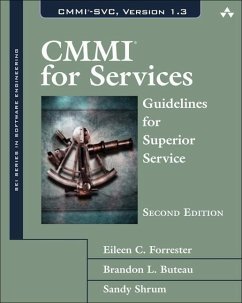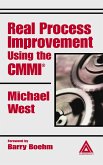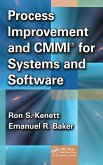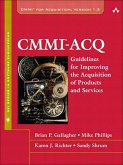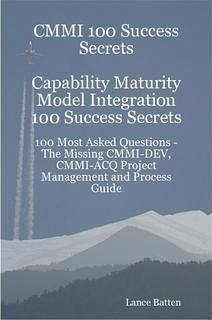CMMI® for Services (CMMI-SVC) is a comprehensive set of guidelines to help organizations establish and improve processes for delivering services. By adapting and extending proven standards and best practices to reflect the unique challenges faced in service industries, CMMI-SVC offers providers a practical and focused framework for achieving higher levels of service quality, controlling costs, improving schedules, and ensuring user satisfaction. A member of the newest CMMI model, CMMI-SVC Version 1.3, reflects changes to the model made for all constellations, including clarifications of high-maturity practices, alignment of the sixteen core process areas, and improvements in the SCAMPI appraisal method.
The indispensable CMMI® for Services, Second Edition, is both an introduction to the CMMI-SVC model and an authoritative reference for it. The contents include the complete model itself, formatted for quick reference. In addition, the book's authors have refined the model's introductory chapters; provided marginal notes to clarify the nature of particular process areas and to show why their practices are valuable; and inserted longer sidebars to explain important concepts. Brief essays by people with experience in different application areas further illustrate how the model works in practice and what benefits it offers.
The book is divided into three parts.
Part One begins by thoroughly explaining CMMI-SVC, its concepts, and its use. The authors provide robust information about service concepts, including a discussion of lifecycles in service environments; outline how to start using CMMI-SVC; explore how to achieve process improvements that last; and offer insights into the relationships among process areas.
Part Two describes generic goals and practices, and then details the complete set of twenty-four CMMI-SVC process areas, including specific goals, specific practices, and examples. The process areas are organized alphabetically by acronym and are tabbed for easy reference.
Part Three contains several useful resources, including CMMI-SVC-related references, acronym definitions, a glossary of terms, and an index.
Whether you are new to CMMI models or are already familiar with one or more of them, this book is an essential resource for service providers interested in learning about or implementing process improvement.
The indispensable CMMI® for Services, Second Edition, is both an introduction to the CMMI-SVC model and an authoritative reference for it. The contents include the complete model itself, formatted for quick reference. In addition, the book's authors have refined the model's introductory chapters; provided marginal notes to clarify the nature of particular process areas and to show why their practices are valuable; and inserted longer sidebars to explain important concepts. Brief essays by people with experience in different application areas further illustrate how the model works in practice and what benefits it offers.
The book is divided into three parts.
Part One begins by thoroughly explaining CMMI-SVC, its concepts, and its use. The authors provide robust information about service concepts, including a discussion of lifecycles in service environments; outline how to start using CMMI-SVC; explore how to achieve process improvements that last; and offer insights into the relationships among process areas.
Part Two describes generic goals and practices, and then details the complete set of twenty-four CMMI-SVC process areas, including specific goals, specific practices, and examples. The process areas are organized alphabetically by acronym and are tabbed for easy reference.
Part Three contains several useful resources, including CMMI-SVC-related references, acronym definitions, a glossary of terms, and an index.
Whether you are new to CMMI models or are already familiar with one or more of them, this book is an essential resource for service providers interested in learning about or implementing process improvement.
Dieser Download kann aus rechtlichen Gründen nur mit Rechnungsadresse in A, B, BG, CY, CZ, D, DK, EW, E, FIN, F, GR, HR, H, IRL, I, LT, L, LR, M, NL, PL, P, R, S, SLO, SK ausgeliefert werden.

